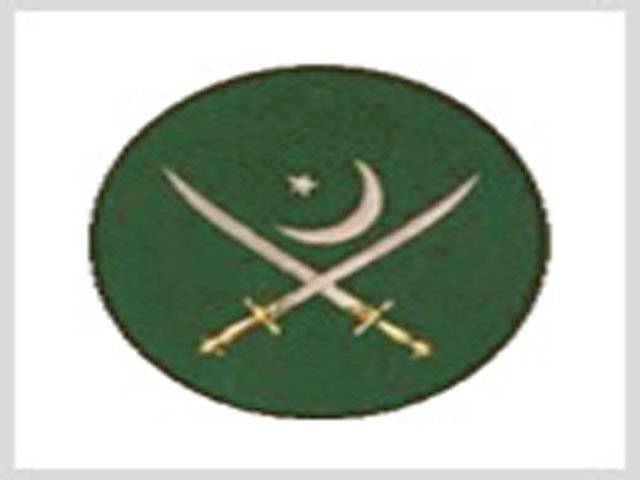ISLAMABAD - CIAs mouthpieces in the US media and the Web have been activated to give maximum punch to US threats of bombing Quetta and convincing the international public opinion of the veracity of US intelligence on the presence of Mullah Omar and Osama bin Laden in Balochistan. Separately, the US embassy has decided to launch a 'scare campaign inside Pakistan, discarding security concerns and opting to intensify television appearances on Pakistani channels in order to create public pressure against the government and especially against the military and the ISI. One of the US intelligence mouthpieces has gone as far as warning Pakistan Army Chief Gen. Ashfaq Parvez Kayani of the 'impact that US strikes could have on the Pakistani military, claiming that this could lead to a 'revolt within the army and the Pakistani intelligence community. The Long War Journal, founded by Bill Roggio, a frequent lecturer at US Air Forces Contemporary Counterinsurgency Warfare School, has warned that the expansion of the US air campaign into Balochistan would likely lead to an internal revolt in the Pakistani military. General Kiyani knows the impact a wide-reaching US air campaign would have on his military. The Journal was established as a not-for-profit company registered in the US after 9/11 to promote the idea of an expanded war that would also serve as a vehicle to achieve US strategic goals. The CIA has a long tradition of creating 'non-profit incorporated companies as multipurpose fronts. Another nonprofit incorporated company called Creative Associates International is suspected of having acted as a front for private US military contractors operating in Peshawars University Town. Mr. Broggios Journal was created by Public Multimedia Inc., which describes its mission as a 'nonprofit media organization with a mission to provide original and accurate reporting and analysis of the Long War. The Pakistani military has used its own channels to convey its strong protest to US military leadership on the belligerent American statements. But with a weak response by the elected government, Pakistan risks failure in countering the multi-pronged US media outreach that seeks to discredit Pakistans soft denials on the issue of Afghan Talibans 'Quetta Shura. Further eroding Pakistans credibility is the alarming phenomenon of US diplomats indirectly threatening war against their host country. Aside from US Ambassador Anne W. Pattersons recent undiplomatic statements, a junior US diplomat - Deputy Head of Mission Gerald Feierstein - has made the unusual move of making a masked threat of war against his host country on Oct. 1. Yesterday, Mr. Feierstein is reported to have called another group of Pakistani journalists and briefed them about what he terms as the insincerity of Pakistans military and intelligence in helping America manage its Afghan quagmire. The US diplomat has reportedly taped an interview yesterday with a Pakistani news channel expected to be aired today. Sources confirm that US diplomats in the Pakistani capital are planning a round of television interviews and press briefings in the coming days as part of a media offensive to counter the growing concern among Pakistanis on the activities of private US security firms in the country and the large number of US citizens that have entered Pakistan in recent months without proper security clearance. TheNation published a detailed report on Sept. 26 on US embassys decision to launch this campaign. Not since the days immediately after 9/11 have US diplomats in Pakistan hit the Pakistani television circuit like this. On Sept. 19, Ambassador Patterson chose a polite Pakistani talk show host to use his platform for an uninterrupted projection of US policy positions. The statements of Ms. Patterson and Mr. Feierstein create a rare precedent. It is not often that an ambassador dares to threaten war against a host government. If Ms. Patterson has stretched the terms of her stay in Pakistan to the limits, the junior diplomat has gone a step further. And in Mr. Feiersteins case, this is an insult to Pakistan that a junior foreign diplomat has the audacity to call a press conference and threaten war against the host country. Ambassador Haqqani, Pakistans envoy to Washington, dares not make half as strong statements even when he should. What the Pakistani media and public opinion needs to consider is that Mr. Feierstein expressed confidence in the intelligence information provided by Karzai and the Indians on the presence of Mullah Omar in Quetta, the capital of Pakistans southwestern province of Balochistan. And he added Osama bin Laden to the list, discovering all of a sudden that bin Laden was definitely in Pakistan and possibly in the same place as Mullah Omar. In the absence of an effective Pakistani response, it will be easy for the Americans to mislead the world on concocted and often deliberately false information, as they did in the days preceding the invasion of Iraq. A Pakistani analyst who has experience working closely with the US government but does not want to identify himself had this take on the latest American posturing: They have launched a media campaign to prepare the public mind and the message to Pakistan is this: Take action in Waziristan. If not then we will bomb Quetta.
Friday, April 19, 2024
US strikes will 'impact' Pak military

SC suspends ECP’s re-polling order in PP-51
April 19, 2024
Court approves plea bargain of Parvez Elahi’s co-accused
April 19, 2024
Zardari creates another parliamentary record
April 19, 2024
KP politicians, civil society laud President’s address
April 19, 2024
A Tense Neighbourhood
April 19, 2024
Dubai Underwater
April 19, 2024
X Debate Continues
April 19, 2024
Hepatitis Challenge
April 18, 2024
IMF Predictions
April 18, 2024
Kite tragedy
April 19, 2024
Discipline dilemma
April 19, 2024
Urgent plea
April 19, 2024
Justice denied
April 18, 2024
AI dilemmas unveiled
April 18, 2024
ePaper - Nawaiwaqt
Advertisement
Nawaiwaqt Group | Copyright © 2024





